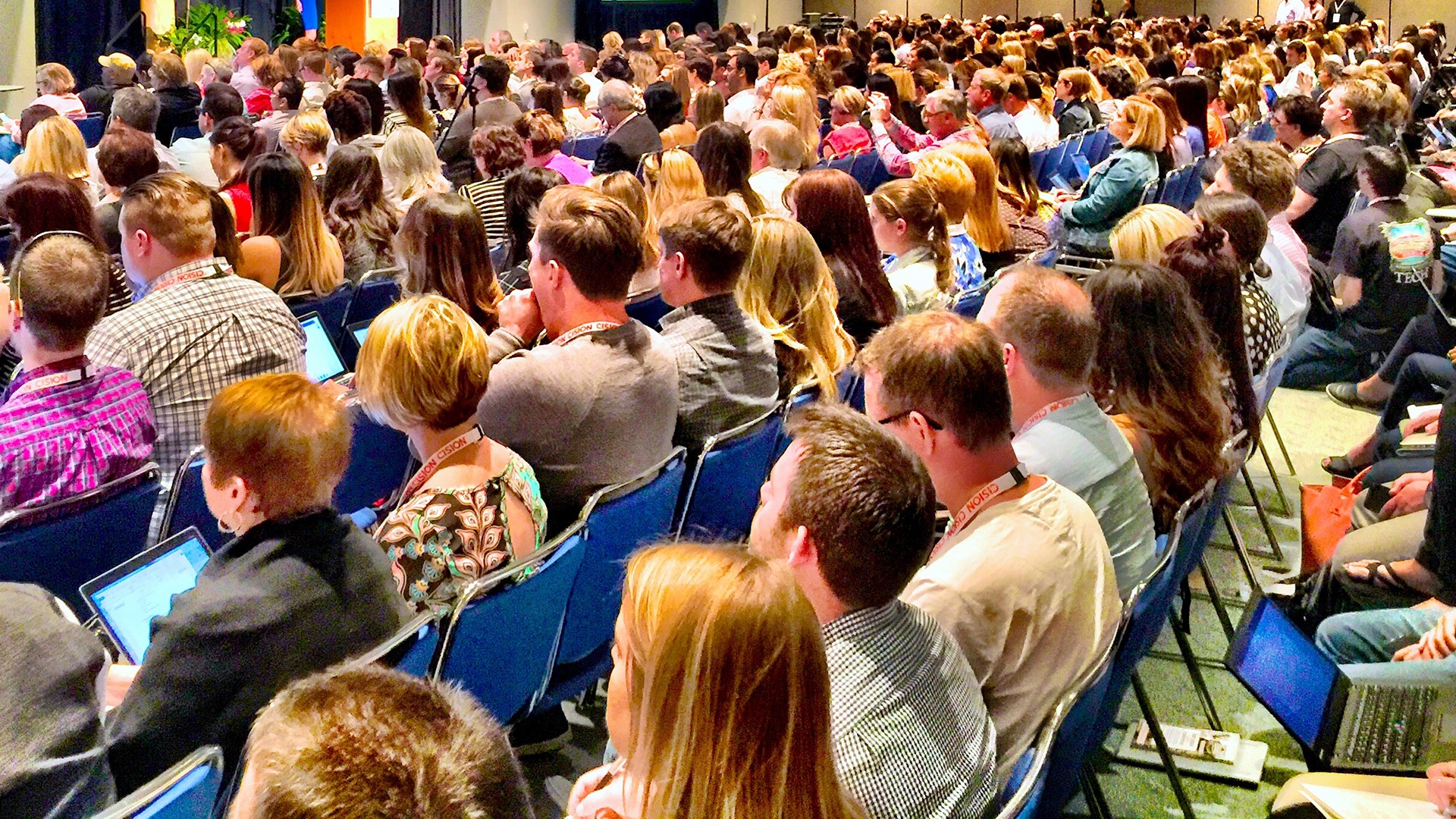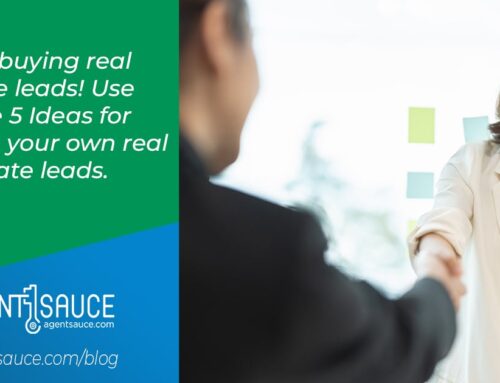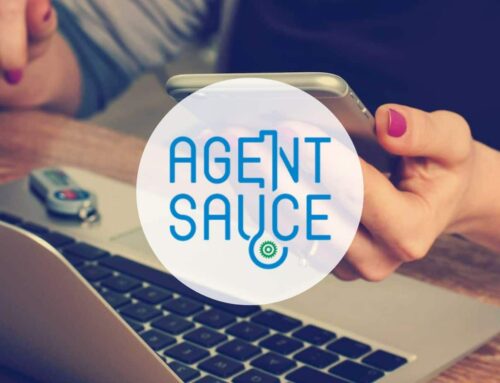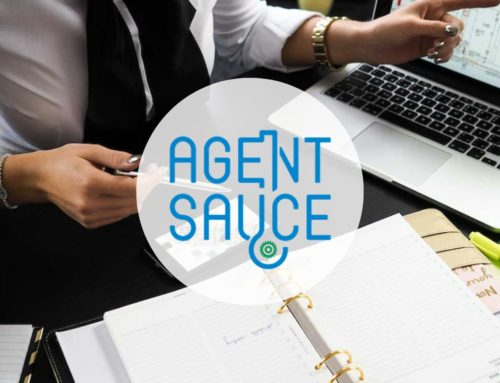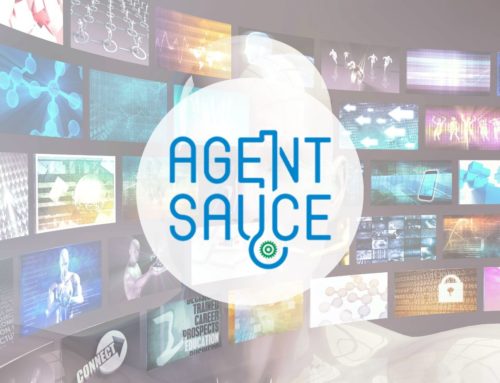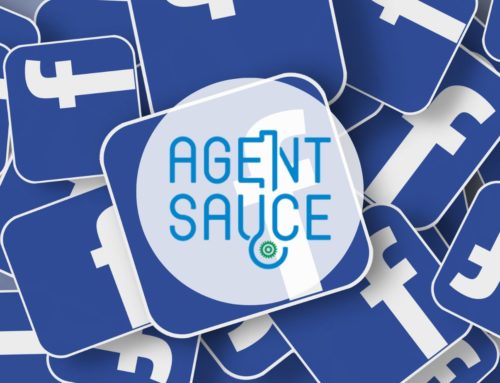A great discussion with Donna Gordon-Willoughby and Nelson Weaver of Kentucky Realtor Association on why agents should attend local, state and national conventions.
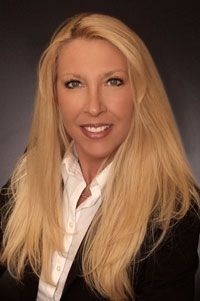
Donna Gordon-Willoughby
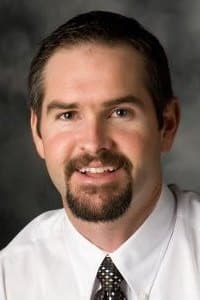
Nelson Weaver
Why Real Estate Agents Should Attend Conventions Takeaways
- There are specific programs for New Agents at the conferences.
- CRS Agents Make significantly more than non CRS agents.
- Visit the booths- you may find that one thing that makes all the difference for your business.
- Grow your network!
Why Real Estate Agents Should Attend Conventions Podcast Transcription
Adam Small: Hello and welcome to the Real Estate Marketing Minute, I’m your host Adam Small and with us today is Kimberly Small. Hi Kimberly, how are you?
Kimberly Small: Doing great.
Adam Small: Great and today we are actually in Louisville, Kentucky, and we are at the Kentucky Realtors Annual Convention and we are sitting with a couple of special guests here today. Our first one is Mr. Nelson Weaver and he is a broker, owner, and delegate at large. Hi Nelson how are you?
Nelson Weaver: Hey, I’m good Adam. How are you today?
Adam Small: Doing great, thank you. Nelson why don’t you tell us a little bit about yourself and how you got involved in conventions?
Nelson Weaver: Well I actually got in the business 1999 so been in almost 19 years. I’ve been a broker owner since 2001 and actually went to my first convention in 2001 in Lexington. At that point realized how vital the convention in itself could be toward my business and the growth thereof and pretty well have attended every single convention since that point.
Adam Small: Great. Our other guest is Ms. Donna Gordon-Willoughby, and she is the convention chair this year and she was also the vice chair last year, is that right?
Donna Gordon-Willoughby: That’s correct.
Adam Small: So Donna why don’t you tell us a little bit about your history and how you got involved in conventions?
Donna Gordon-Willoughby: Okay, thanks Adam and it’s nice to be here with you and Kimberly today. I got involved originally I served on a local level in Louisville and they pulled me into the state, got me involved with coming to convention and that eventually led into leadership. So getting into leadership you move your way up working through different chair programs, and realized the significance of being around the rest of the state realtors, the brokers and the involvement that that goes along with at the networking that you build.
Adam Small: Right, great. So listen, we’re going to be talking today about why it’s important for agents to attend conferences so you know one of the things involved with conferences, obviously they take a lot of time. Right? There’s a time commitment, there’s a financial commitment as well so what do you guys say to an agent that concerned about stepping away from their business for an entire week at times and the cost involved with it because of travel and all the other things associated with that?
Nelson Weaver: Well I think I could start with that, it’s certainly something that we had to consider and being a younger agent, or a newer agent in the business, oftentimes money and time can be a hard situation. Especially the money, you actually do have more time.
Adam Small: Well everybody knows that starting out agents they’ve got all the money in the world because they make so much from commission, right? So what would you say then to say okay, I understand money is an issue but this is really important?
Nelson Weaver: You know it’s all about scheduling and the priorities in our life and within our industry. Once you realize the value of what you can glean from the convention in itself, at that point it almost, if you look at the sense of you can’t afford not to attend because of, I mean just what you’ve got besides the connections and the networking that you meet, you’ve got all the information from the classes offered which usually at the state convention we pull in some of the best national speakers that are available. Then you’ve got just the motivation that you pick up from seeing these people. Whether you’re a new agent, excited to learn or an older agent that’s kind of still-
Adam Small: 19 years or so?
Nelson Weaver: Exactly. I’ve never came to a convention that I didn’t get inspired or I didn’t pick up one piece of information that I could take back to, whether it’s myself or take back to my agents, and that made me more money than whatever missed opportunities I might have had while I was there.
Adam Small: Okay, so like you said earlier, it’s just a can’t miss opportunity, is what you said right?
Nelson Weaver: Exactly.
Adam Small: Donna, what are your thoughts?
Donna Gordon-Willoughby: In regards to the amount of time and the cost to come, it is made up very easy by your continuing ed that you get. The ability to meet people like you guys-
Adam Small: Well thank you. You make me feel special.
Donna Gordon-Willoughby: But the ability to look at new and innovative marketing ideas that come through in the trade show. The trade show is a big part of the convention and it exposes these agents that maybe aren’t able to get out and look at new marketing ideas and plans, to be able to come across folks like you and take an opportunity to talk and get some background information, go back home, and start to put that into their marketing finance plan.
Adam Small: Right, so again, the opportunity to grow their business really is what it comes down to. It’s just an excellent opportunity. Kinda pulls them out of their comfort zone of being at home, their nice little bubble and all that, and kinda breaks up that mindset so that they’re able to be exposed to better things or other things, and hopefully grow their business is what it sounds like.
Donna Gordon-Willoughby: Yeah, I always tell my agents, activity breeds activity. You can be sitting at home on the couch or fumbling through Facebook, or whatever it is that you do on your downtime. We all have that downtime. Come here, use your downtime. If you get busy we all have phones. We’re all capable of working on the go.
Adam Small: Exactly. Nelson, you kinda touched on this earlier about new agents. You were talking about new agents just a moment ago. But are there any unique benefits for a new agent that’s just starting out to attend a state conference? Is it even more important for a new agent to attend maybe?
Nelson Weaver: You know, when I look at it maybe from a broker’s standpoint, and I know everybody does things differently, and I was fortunate enough to get involved early on as a new agent, that’s when we’re most excited, it seems like in the business.
Adam Small: Right.
Nelson Weaver: But setting that tone pretty much for the rest of your career. It seems like a lot of the planners, and Donna could probably speak to this later, but there are so many different things that they have for first time attendees, and it seems like also the expos and the vendors set up there have a lot of different products that you walk in and you’re just blown away with some of these marketing ideas and tools that are available that you just had no idea were out there.
Nelson Weaver: First of all, you get to see all that, but then you get to see the inner workings of, I guess it would be the less-exciting part of the industry, but how the organization in itself works, and how important it is for the delegates and the directors to come together, forging our industry forward, and realizing how important that if we’ve got problems with our business, or learning to grow our business, or things aren’t the way we exactly want it to be, we realize that at the convention in the meetings, we have an opportunity, we have a say. We can talk to our delegates and directors and say we need to fix this. And it was for me, early on with the conventions and the meetings, I realized hey I’ve got a say. I’m a member and I can actually help forge the direction of our industry.
Nelson Weaver: And that excited me, and that’s why I’ve been involved. And the convention is the perfect place to learn to be involved. And one of the biggest benefits and programs I’ve seen, and Donna can speak to this a little more, they’ve got a program called the Leadership KYR, and as a younger agent or new in the business, or a seasoned agent, this is an opportunity that can lead you to further leadership within the organization.
Adam Small: So it sounds like there’s just a lot of opportunity for a new agent to come in and learn a lot with stuff that’s really geared toward them and their challenges, specific to them, not that it’s not great for agents that are much more experienced, but there are specific programs for new agents here, right?
Nelson Weaver: That’s correct. We specifically reach out to some of the new agents.
Adam Small: Right. Donna, what are your thoughts?
Donna Gordon-Willoughby: Well really just to piggyback on what Nelson said, but a new agent coming in can be very intimidated by the amount of information that’s out there, and being around seasoned agents. Coming here, to me it felt like it leveled the playing field a little more, because I was abruptly thrown into information and tactics that might have otherwise taken me two years to understand or even have a conversation with someone about, because the exposure is statewide, you’re not just talking about local agents.
Adam Small: You mentioned earlier that stepping away from your business and taking time to do this is a big part of growth and learning how to grow your business as well. So, can one of you guys tell me about your process for selecting speakers that come to these conventions, and why being present in the room with that person when they’re speaking is so much better than just sitting down and watching a video on YouTube?
Donna Gordon-Willoughby: I’ve experienced this now for the last two years, and it was very eye-opening, did not understand the process prior to being on the committee for the selection. But being able to sort through the number of very talented people out there that are set up to motivate and educate agents across the country, was a fun experience. So the committee will look at as many as 10 different speakers before they decide on picking a keynote and then educational instructors that specifically have talks that are geared towards things that are happening at the time, such as, at this particular convention, our keynote speaker is mostly a motivator but he’s going to talk a lot about social media marketing, advertising, that way. We also are bringing in specialist in wire fraud, FBI, source-
Adam Small: That’s a big one lately.
Donna Gordon-Willoughby: … and all of these things are important for agents to know. You never know. There’s never a problem until there’s a problem. By bringing in this spokes we can cover … The bigger city sometimes have their own legal people, but some of the smaller counties aren’t privy to that. So, by bringing in educators that have dealt with wire fraud, we can educate and help protect those agents while they’re here.
Adam Small: So, you’re looking at people that, things are happening in the industry and people that can speak to those things as opposed to just putting a couple of names in a hat and saying, “Oh Yeah, Bill Gates. Sure. Let’s try to get him here.” Right?
Donna Gordon-Willoughby: Yes, it is a very thought out process and of course, we’re under budgetary restraints, but at the same time- [crosstalk 00:11:12]
Adam Small: Are you sure? I’m not sure.
Donna Gordon-Willoughby: No, most of them just like to do it because they love it, but yes, you have a budget that you have to go by, but when you’ve got a really good speaker and they can motivate you and get you fired up on online you’re like, “Wow, I can’t wait for this guy to walk in the room.” You walk out of that room excited and ready to go, ready to get back to your office and start implementing whatever it is that they’ve brought out.
Adam Small: Right. So, speaker can make all the difference. Very motivational at times. We just went to a Conex conference in Toronto last month and the last speaker and I’ll botch his name. I can’t even say his name because I can’t entirely remember it, but he was speaking about mobile marketing and the entire time he spoke he was just running around that stage and he was practically shouting at you. He was very energetic and he was also quite inspirational because he was talking about how he did things out of the norm and he worked with Oreo cookies. He was the guy that broke the, I’m sure you all remember. Maybe not. Maybe you don’t, Donna, you may be too young for this, but growing up it was Oreo was kind of their thing. He’s the one that broke away from that and 50 years of that and they were like, “I don’t think we should do this.” He’s like, “Yeah, just run with it.” But it turned out to be very much a success.
Adam Small: I can’t remember, there were a couple of different things they did, but the whole point of it was walked away entirely motivated to step up and address our marketing and our business and what we can do in order to grow it as well. So, great to hear the process there and how much thought you guys put into what’s going on in the industry and how can we get speakers that can help our constituents or realtors address that. So, really great to hear that.
Kimberly Small: Talking about education and being motivated, agents have to get so many CE credits every year, and conferences are providing those opportunities to them. Is it true that an agent can come to a conference like this and get all the education, the CE credits that they need for a year?
Donna Gordon-Willoughby: Absolutely. That’s going back to one of the other questions was cost and time away from work. Those are things that agents have to invest in themselves anyway. So, coming to a convention is an investment but you get a return on that investment because otherwise those classes have to be taken elsewhere, those hours have to be turned in by the end of the year and you’re getting all that at one time along with all of the motivation and the inspirational talks. So, yes, they can come, they can get in Kentucky, all states are different, but in Kentucky, you are required for six hours of continuing ed. Three of those have to be in law and there’s several opportunities during the three or four days that we have convention to get that time in.
Kimberly Small: Great. So, the CRS which Certified Residential Specialist, it’s a designation highest credential awarded to residential sales agents. Tell me a little bit about this designation and what does it do for them?
Donna Gordon-Willoughby: The CRS, there was a couple of different ways that you can attain your CRS. One is by volume, just sheer volume, the number of cells that you have. The other is going by the years in the business. There’s a process that they follow to qualify people for the CRS, but it has been proven that people with a CRS designation, as much as triple what a regular licensee makes.
Adam Small: That gets back to investing in yourself, investing in your business. This is an excellent opportunity to be able to do that at the same time.
Donna Gordon-Willoughby: Yes. Not only do you get the standing education, but the networking and referral system is very beneficial through the CRS. Through the process of obtaining the designation, professionalism is raised and it’s proven that CRS agents make significantly more salary [inaudible 00:15:33]. They close more transactions and they have a higher success rate of becoming successful. Convention helps with this because a lot of the classes are offered during the convention or a meeting when it’s being held. There is also a CRS booth that’s available for new members to visit at almost all of the conventions so that new agents can come by and find out what the qualifications need to be, what classes need to be taken and there’s always a member there of the CRS committee that’s willing to sit and talk with those agents.
Adam Small: New members get out there and find that booth, right?
Nelson Weaver: Exactly.
Adam Small: All right. One of the things at these conventions is that there’s usually a vendor fair of some sort and then obviously, the agents go through those, so, what kind of advice do you guys have to both vendors and agents how they can get the most out of these expos?
Nelson Weaver: I think the expo is awesome. I remember the first time as a young excited agent coming to my first convention and just walking through there. It’s almost like a kid at a candy store and-
Adam Small: [inaudible 00:16:49] kids are given way all the [inaudible 00:16:50]
Nelson Weaver: … Exactly, but there’s lots of technology marketing ideas and tools out there. Multiple mortgage companies, home warranties, different inspection service companies and you’re walking through there and she did mention, Donna had mentioned, it can be overwhelming but at the same time it’s exciting. You’re in this business and you see all the-
Adam Small: It’s quite an eye opening at times too, right?
Nelson Weaver: … It sure is and I would have her speak toward as a planning out a convention, how do you, I would like to know myself, how do you come across some of these vendors that are at the convention? I don’t know what the criteria selection, but as a consumer, as a member coming to this, I’m excited to know myself, do we reach out to them or do they come to us because they’re just awesome?
Donna Gordon-Willoughby: What happens in that process is we as a part of the convention committee reach out to different vendors that we use on a daily basis. Your home inspectors, your mortgage companies, roofers, sign companies. Anything that touches your business, or anybody that has the ability to make your business run and work better, we reach out to. They’re not the only ones we reach out to, of course, there’s fun stuff. We want the women to have some jewelry and purses to look at to, to break up the monotony of mortgage companies and then [inaudible 00:18:27] stuff, but as far as the vendors themselves go, they get a booth, they are able to expose their business, they have an opportunity to talk to three to 600 agents depending on the size of the convention, get that exposure.
Donna Gordon-Willoughby: I always tell them vendors, the best thing you can do is have something that these guys are going to remember you by to maybe leave them with or have a fun booth. Have something where they throw a ball in something. There’s different ways that we go about attracting those vendors too, above and beyond the exposure they’re going to get.
Adam Small: What would you say to a to an agent to get the most out of the expo?
Donna Gordon-Willoughby: Well, we always used to use a bingo card that allowed the agents the opportunity to visit every booth and pick up a stamp. That ensured that not only did the vendor get an opportunity to get in front of that agent, but it also made sure that the agent at least made the effort to visit each booth because you never know what’s going to be used-
Adam Small: That make them to cross out one thing that they wouldn’t have done otherwise. Right?
Donna Gordon-Willoughby: … Absolutely.
Adam Small: So, really, just make sure you visit the booths and check out everything because you may find that one thing that you really didn’t know about and may really want to.
Donna Gordon-Willoughby: Yeah.
Adam Small: Yeah, great.
Kimberly Small: You mentioned elections earlier. Tell us a little bit about what agents can expect to do as far as participating in those elections and being involved and what can they do in advance to prepare themselves for that.
Donna Gordon-Willoughby: As the convention approaches, our state association makes sure that all licensees are notified of the convention, where it will be, the opportunities to sign up for an early bird discount. Quite honestly, the convention as a whole, to sign up, just to get in convention is really inexpensive. I don’t want to say cheap, but-
Adam Small: Nobody likes that word. Let’s be honest. Right?
Donna Gordon-Willoughby: But inexpensive for what you get. We’ve kind of beat that horse in this conversation, but the other opportunity is to meet the state leadership because the state leadership is who puts on the convention. During the annual convention is when we do vote in new leadership. So if you are a delegate, you have the opportunity to vote for incoming president, treasurer, your NAR directors. Those are your people that are representing you not just on the state level, but now they’re moving up to Washington and they’re being able to talk to those legislators and those people very much the same way we do here on a state level. But now they’re with the national guys. They’re with the guys that are making decisions that is going to move the housing industry forward. Collectively, we’re all in this business to make the housing industry the best we can make it.
Adam Small: Great. So what I hear you saying is that coming to the conventions helps you express your voice, voice your concerns and gives you a voice in the community as a whole. Is that correct?
Nelson Weaver: That is correct, and again, that was something I alluded to earlier that was important to me. It inspired me early on to get involved and to realize that I had a voice of the people I selected, of things that were going on in my industry that I thought that I could either make better or fix something that I didn’t feel was correct.
Adam Small: Right.
Nelson Weaver: Just having that voice is empowering, and just being able to elect and the opportunities through programs that they offer with leadership KYR or going to the CRS booth and moving to a greater sense of professionalism in our business.
Adam Small: Right, right, right, absolutely.
Kimberly Small: So we’ve talked about education and investing in yourself and all that stuff during this podcast, but let’s talk about the fun. There’s some fun with these conferences too.
Adam Small: Let’s talk about the parties.
Nelson Weaver: Yeah.
Kimberly Small: Let’s talk about the parties, entertainment, because that’s part of it too. The days are long with the education portion of things and the speakers and that, but at the end of the day, the organizers do a great job of providing entertainment and stuff that will help agents unwind and get to know people in a social atmosphere more so. Tell us a little bit about how those are planned and what agents can do to get the most out of those as well.
Donna Gordon-Willoughby: Yeah, as you mentioned, the days are very long, so at the end of a long day of committee meetings or educational classes where you just want to chill out, we try to provide things in the evening that are fun. Depending on the city you’re in, there’s different opportunities to do that. As far as our committee this year, we really try hard to keep things close to the hotel so people aren’t having to travel out. We can provide them everything they want right here.
Adam Small: So they’re not going to have to walk five miles through the snow uphill [inaudible 00:23:39] place?
Donna Gordon-Willoughby: Yeah, or in thunderstorms as we had here.
Nelson Weaver: Right, right.
Donna Gordon-Willoughby: We were very fortunate this year. We brought in a local … they call him the CEO for [inaudible 00:23:50]. He is the Chief Entertaining Officer. He came in and did a talk on bourbon, Kentucky being the bourbon capital it is. Not only did he relate that talk and a little reception cocktail party with a cocktail that he made up specifically for this, but he related it to housing and bourbonomics and how that affects Kentucky’s industry not only just with bourbon but with housing. Because these companies are bringing so many people in and they’ve got to have a place to live.
Adam Small: That’s the entire economy, right?
Donna Gordon-Willoughby: Exactly. But then we have our presidential insulation, and after that, we had a great band, a local band in, and had an after party for that. After the trade show, we do have a big trade show party so we have a DJ there for that, photo booth, so lots of activities that are going on constantly to get your mind off of all the business and all the work to just chill out and actually network and meet people and talk about every day things without moving the needle on, “Oh, I’ve got to get education,” or “I’ve got to go to a meeting” and just relax and have some fun.
Adam Small: Right.
Kimberly Small: Something that we haven’t mentioned as far as state conference. Referrals. Agents love referrals, and a lot of times, people will move within the state and this is a great opportunity to meet agents that are in other areas of the state that you can call upon when you have somebody that is going that way and vice versa.
Nelson Weaver: Well that’s exactly how I had met Donna a few years back, and at these meetings and at the convention especially, it just … it puts you in an environment where you’re either in a class, you’re in a meeting, or during the evenings, during the social hour or one of the planned events. You get to meet new people and you get to talk. You get to learn from people all over the state and you get to know them from a personal level.
Adam Small: You’re growing your network on a huge level, and then not just in your community but across the state.
Nelson Weaver: Exponentially, yeah, and those opportunities, whether you’re a newbie or a seasoned agent, it’s so valuable for your business and for the growth. It’s just a wonderful experience.
Adam Small: Great, great. All in all, it really does sound like a great experience. Before we wrap up, let me ask you guys. Is there anything else that you wanted to touch on that we didn’t talk about today?
Donna Gordon-Willoughby: I’m very passionate that people get involved. The convention to me is the best, easiest way. There’s so many opportunities for fun, and it takes some of the stress of putting extra pressure on agents who are out there everyday in the business, pounding the sidewalks, trying to make it work, where they can come in and like we’ve talked about, get that education, have the fun but get involved. Nelson briefly mentioned and I wanted to touch on that, the state has set up a program called KYR leadership, and it’s basically mentoring and molding younger people to come in and start to take over. Because as in any organization, you have the same people that do the same things all the time, and we need the young people. We need people with fresh, new ideas coming in. This is a program that was started, I’m a graduate, Nelson’s a graduate, and it has motivated and moved younger people up through the leadership chain and state association so that we are making good decisions. I’ve served as a director for the organization, Nelson has done so also, and one of my classmates is now the president of the state organization.
Adam Small: Nice.
Donna Gordon-Willoughby: Those are the things, and whether or not you have political or leadership tendencies, you don’t know unless you try it. The leadership helps you to learn a lot about yourself. It may help you to understand that you are leadership material or you know what, I’m a worker bee, but I like the organization, I want to be involved, and I want to see it successful.
Adam Small: Great, great. Nelson, anything to add?
Nelson Weaver: Well, I think also too, my wife is in the business and it’s a neat opportunity that we can actually come together and sit through and experience the classes. She’s sitting back there in the wings right now in the podcast, probably giving me funny faces, but …
Adam Small: She was taking pictures a few minutes ago, so you know …
Nelson Weaver: But it’s neat. Because we’re a realtor family, but at the same time, it’s an opportunity where you can do it together and you’re not necessarily missing out on all aspects of your life, so to me that’s a neat added bonus.
Adam Small: Great. Kimberly, got anything else to add to that?
Kimberly Small: I think that’ll do it.
Adam Small: All right. Well, thank you guys so much for joining us, we do appreciate it. To all you guys listening, thanks for joining us, thanks for listening, and we’ll see you next time.

